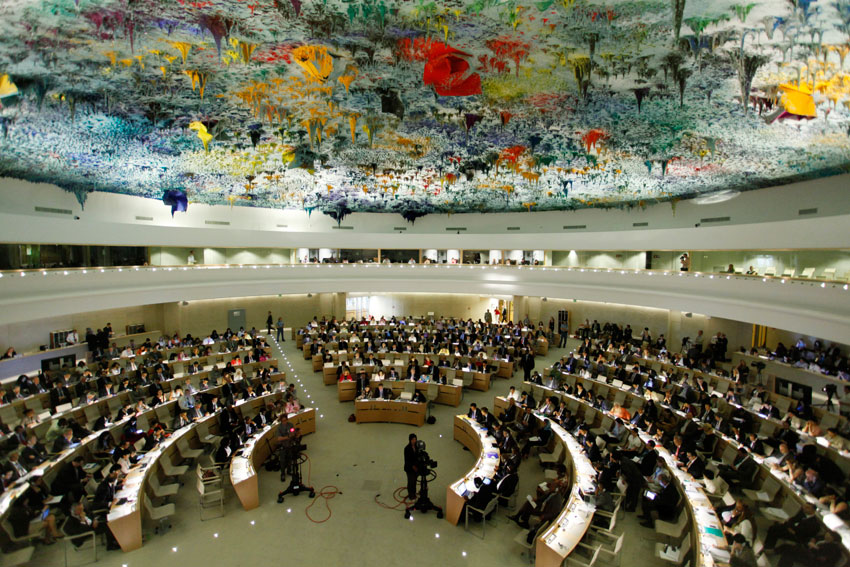To: Members of the UN Human Rights Council
Geneva, 24 September 2014
Excellency,
We write to express our concern about a worrying development in the Human Rights Council in the use of procedural tactics to silence important and legitimate debate on critical human rights issues and situations.
At the Council’s 26th session in June 2014, we witnessed the use of a ‘no-action motion’ to prevent the consideration of an amendment proposed to the resolution on the ‘Protection of the family and all its members’, thereby preventing substantive debate. A ‘no-action motion’ is a procedural motion by a member of the Council that prevents the discussion of a proposal or matter in the Council. This was the first time that this stifling procedure was used in the Human Rights Council in connection with a thematic issue. We are concerned about the prospect of similar tactics at the current session.
By virtue of General Assembly Resolution 60/251 the Council’s mandate includes the promotion of ‘universal respect for the protection of all human rights and fundamental freedoms for all’ (OP2) based on ‘constructive international dialogue’ (OP4). As a Human Rights Council member your delegation has an obligation to ‘fully cooperate with the Council’ (OP9), which implies an obligation to participate in good faith in the Council’s debates, to support full exercise of the right to freedom of expression and to express a position on draft resolutions and decisions and related proposals for amendment by voting when required.
With a view to the decisions and conclusions of the 27th session, scheduled to commence on Thursday, 25 September, we call on your delegation to refrain from introducing or supporting the use of ‘no-action motions’ and other procedural tactics that run counter to the principles governing the Human Rights Council. Supporting a ‘no-action motion’ with a view to avoiding substantive debate and a clear decision by the Council on a proposed resolution or amendment is incompatible with Resolution 60/251 and violates the principle of constructive dialogue.
A vote in support of a ‘no-action motion’ is censorship tantamount to opposition to the substantive question itself and will be seen that way. We urge your delegation not to support any such motions. Instead, we call on you to exercise your duties and responsibilities as a Council member in such a way as to ensure full and open debate, and the resolution of issues put to the Council in a manner that ensures respect for all human rights for all.
Sincerely,
Philip Lynch
Director, International Service for Human Rights • +41 76 708 47 38
This letter is supported by:
- Amnesty International
- Asian Forum for Human Rights and Development (Forum Asia)
- Centro de Estudios Legales y Sociales (CELS)
- CIVICUS
- Commonwealth Human Rights Initiative (CHRI)
- Conectas Direitos Humanos
- East and Horn of Africa Human Rights Defenders Project (EHAHRDP)
- International Federation for Human Rights (FIDH)
- International Commission of Jurists (ICJ)
- International Service for Human Rights
- Human Rights Watch
- Human Rights House Foundation




